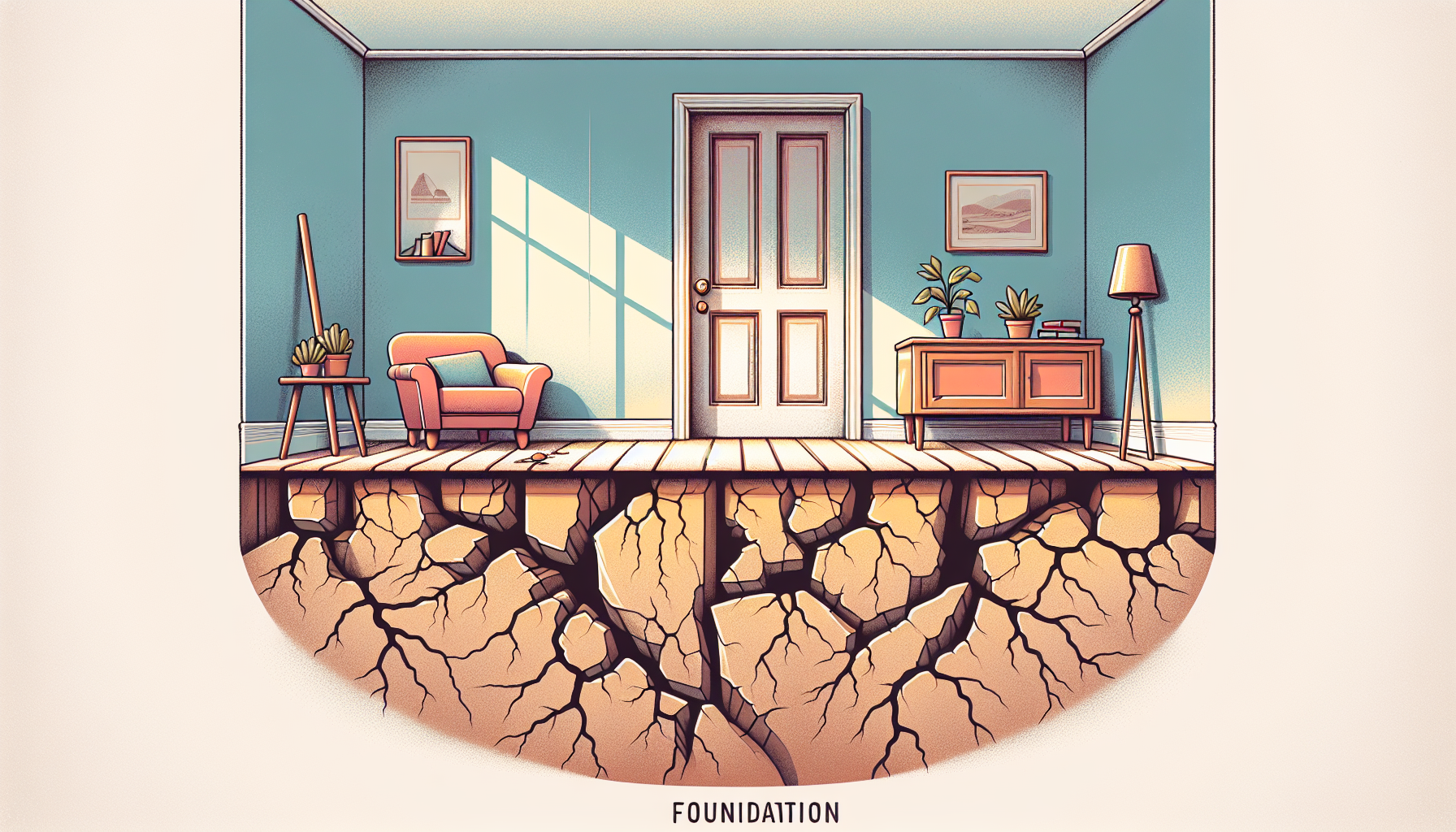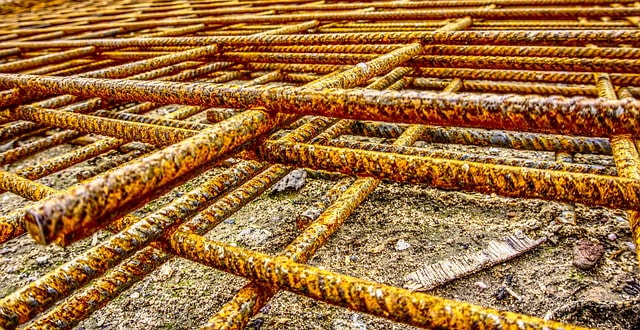Inspecting your home’s foundation is vital to prevent costly damage and maintain safety. This guide helps you understand why to inspect foundation inspections are important, how to do them yourself, and when to hire a professional.
Key Takeaways
- Regular foundation inspections are crucial for identifying potential issues early, preventing expensive repairs and preserving property value.
- Key indicators that necessitate a foundation inspection include visible cracks, moisture stains, and uneven floors, which can point to serious structural problems.
- Hiring a qualified professional for a thorough foundation assessment is essential when significant issues arise, as it provides an expert evaluation and recommendations for repairs.
Importance of Inspecting Your Home’s Foundation
Your home’s foundation is the bedrock of its structural integrity. A strong foundation ensures that your house remains stable and safe, preventing extensive damage that can arise from foundation issues. Regular inspections help catch potential problems early, enabling homeowners to tackle them before they turn into expensive, extensive repairs.
Early detection of foundation problems not only keeps costs down but also avoids the hassle and disruption of major repairs. In older homes, regular inspections can uncover trouble spots that might otherwise remain hidden, preserving the property’s value and safety.
A recent foundation inspection can also make your home more appealing to potential buyers. Buyers are often wary of foundation issues, and an inspection report can provide peace of mind, expedite the sale process, and potentially increase your home’s market value. Whether you plan to sell your home soon or live in it for years to come, regular foundation inspections are a wise investment.
Key Signs You Need a Foundation Inspection
Identifying early signs of foundation issues is essential for homeowners. Common indicators include horizontal or wide cracks, bulging walls, and moisture stains. These signs often suggest that something is amiss with your home’s foundation and warrant a closer look.
Other warning signs include sticking windows and doors, uneven floors, and noticeable gaps between walls and ceilings. Chimney cracks, pest problems, and leaking basements are also red flags that indicate you may need a foundation inspection. Addressing these issues promptly prevents further damage and higher repair costs.
Horizontal cracks, in particular, are a major concern as they often indicate structural issues within the foundation. Noticing any of these signs means it’s time for a thorough inspection or to hire a professional for assessment. Addressing foundation problems early can save you significant time, money, and stress in the long run.
How to Perform a DIY Foundation Inspection
Performing a DIY foundation inspection every three to six months can help you catch potential issues before they become major problems. Start by walking around your home’s exterior, looking for signs of settling or damage to the concrete slab or foundation walls. Make a habit of noting any changes or new cracks you observe, as these can provide valuable information for a professional diagnosis if needed.
Inside your home, check for cracks in the walls and ceilings, uneven floors, and moisture in the basement walls or crawl space. Observing these details can help spot foundation issues early, enabling prompt action to prevent severe damage.
Keeping detailed notes during your inspections will also aid in tracking the progression of any potential problems.
Exterior Examination Tips
During exterior inspections, check for uneven loads on the foundation, such as:
- bulging or leaning walls
- cracks in the concrete or brickwork
- uneven areas
- deteriorating concrete
These are all indicators that there may be issues with the foundation. It’s also important to check the tops of concrete piers for any broken connections or movement, as these can compromise the stability of your home.
After heavy rainfall, inspect the ground around your foundation for pooling water or signs of erosion. These can indicate drainage issues that may lead to foundation damage if left unaddressed. Routine exterior inspections can catch problems early, reducing the risk of costly repairs.
Interior Inspection Techniques
Start by inspecting the foundation walls inside your home. Pay special attention to any stair-step cracks, horizontal cracks, or cracks around corners that measure 1/8 inch wide or larger. These types of cracks can indicate serious structural issues that need to be addressed promptly. Also, look for signs of moisture, such as rust on metal piers or a musty smell in the basement or crawl space.
Check the floors and ceilings for signs of movement, such as buckling, bulging, or sloping. Support beams need to be level and free from buckling to maintain your home’s structural integrity. If you notice any of these issues, it may be time to call in a professional foundation inspector.
Checking for Water Damage
Water damage is a major cause of foundation problems, so it’s essential to check for signs of moisture during your inspections. Check for pooling water around the foundation, which may indicate broken pipes or expansive soil. Moisture issues can lead to severe damage, including structural failure, if not addressed promptly.
Inspect your basement or crawl space for standing water, musty odors, and efflorescence—a white, powdery residue on the walls that indicates water intrusion. Tackling these issues early prevents serious damage and maintains your home’s structural integrity.
When to Hire a Professional Foundation Inspector
DIY inspections are helpful, but sometimes hiring a professional foundation inspector is necessary. If you notice visible cracks in the walls, moisture around the foundation, or uneven floors, it’s time to call in the experts. Severe weather conditions, such as earthquakes or flooding, can also cause foundation damage that requires professional assessment.
A professional foundation inspector will provide a detailed assessment of your home’s foundation, identifying any issues and recommending necessary repairs. Addressing small problems early with a professional can save money in the long run by avoiding costly repairs. Additionally, a professional inspection can provide peace of mind, knowing that your home’s foundation is safe and stable.
Choosing the Right Foundation Inspector
Choosing the right foundation inspector ensures a thorough and accurate assessment. Start by consulting with neighbors and researching local professionals to find a qualified inspector. It’s important to hire an unbiased inspector, such as a licensed foundation engineer, who can provide trustworthy recommendations.
Look for an inspector with experience in local soil and building conditions, as this knowledge is essential for identifying potential issues. Effective communication is also key, so choose an inspector who can clearly explain the inspection process and any findings.
A trustworthy foundation repair company offers a range of foundation repairs solutions and is transparent about their services.
What to Expect During a Professional Foundation Inspection
A professional foundation inspection typically involves a visual examination of the foundation or basement. This process focuses on identifying any cracks or damage present. The inspector will assess soil conditions, check support structures, and examine drainage systems, gutters, and internal structures. It’s important to inquire about the inspection process and what outcomes to expect during the inspection.
After the inspection, homeowners will receive a detailed report that includes all findings. This report helps homeowners understand any issues that were identified and provides recommendations for repairs.
A professional inspection by a home inspector ensures the safety and stability of your home.
Common Foundation Problems Identified by Inspectors
Foundation inspectors often identify a range of common problems during their assessments. Notable foundation cracks, especially those wider than 1/8 of an inch, can signal serious structural concerns. Uneven settling of the foundation can lead to issues such as cracks in the walls and ceilings, bowing walls, sloped floors, and gaps between floors and walls.
Chimney issues, such as cracking, leaning, or separation from the main structure, are also common indicators of foundation problems. Roof issues, like a wavy or drooping roof, may point to underlying foundation problems. Addressing these issues promptly can prevent higher repair costs and potential damage to structural components.
Foundation Maintenance Tips
Proactive foundation maintenance prevents minor issues from becoming major problems. Inspect your foundation at least twice a year for cracks and water damage. Keep gutters and downspouts free of debris to ensure proper water flow away from the foundation.
Maintain consistent moisture levels in the soil around the foundation to prevent cracking. Schedule annual plumbing inspections to check for leaks that could impact the foundation. Document any foundation issues and repairs for maintenance records and potential insurance claims.
Installing root barriers can also prevent tree roots from encroaching on the foundation.
Cost of Foundation Inspections
The cost of foundation inspections typically ranges from $300 to $800, depending on various factors such as foundation inspection cost, home size, foundation type, location, and rate of the structural engineer.
More complex cases can reach between $1,000 and $3,000. Larger foundations and those with accessibility issues will generally incur higher costs.
Despite the costs, regular foundation inspections are a wise investment. They help catch problems early, potentially saving homeowners from more significant repair expenses in the future.
Summary
In summary, regular foundation inspections are crucial for maintaining the structural integrity of your home. By recognizing early signs of foundation issues, performing DIY inspections, and knowing when to hire a professional, homeowners can prevent costly repairs and ensure their homes remain safe and stable. Investing in foundation maintenance and inspections is a proactive step that can save time, money, and stress in the long run. Prioritize your home’s foundation today to protect your investment and enjoy peace of mind.
Frequently Asked Questions about Foundation Inspection in San Antonio
How much does a foundation inspection in San Antonio typically cost?
A foundation inspection in the San Antonio metro area generally costs between $300 and $800. More complex inspections, such as those involving a concrete slab foundation, large residential buildings, or the need for a structural engineer, may range from $1,000 to $3,000. Property owners should verify the process with experienced foundation contractors to ensure the inspection report addresses their specific needs.
What are the common signs that I need a foundation inspection?
Common signs of foundation issues include cracks in concrete walls, uneven or sloping floors, sticking doors and windows, and visible gaps near exterior doors. Foundation movement caused by poor drainage, soil shifts, or improper grading can all compromise the structural integrity of a home’s foundation. Identifying these signs early helps protect property and avoid costly repairs.
Can I perform a foundation inspection myself?
Yes, homeowners in San Antonio can perform basic building inspections by looking for cracks, moisture problems, and sloping floors. However, DIY inspections are limited and may not detect structural damage. To properly identify foundation problems and determine the best foundation solutions, it’s highly recommended to consult a professional foundation repair company with experience in the city and surrounding TX areas.
When should I hire a professional foundation inspector?
Hiring a professional inspector or structural engineer is vital when you notice signs such as foundation movement, moisture intrusion, or significant cracks. If your home’s foundation has uneven floors, sticking doors, or other visible damage, a dedicated foundation repair company can perform a detailed evaluation and provide quality foundation repair services tailored to the property.
What maintenance tips can help prevent foundation problems?
To protect your San Antonio home from foundation damage, schedule regular inspections, keep gutters and downspouts clear, and maintain even soil moisture around the foundation. Property owners should also check for poor drainage and foundation improper grading, both of which can cause slab foundation issues. By addressing small problems early and working with trusted contractors, customers can ensure their foundation is successfully repaired and enjoy long-term peace of mind.













